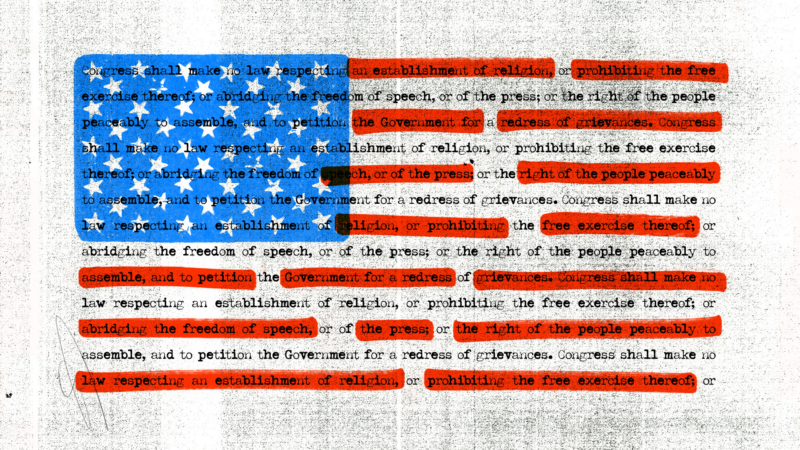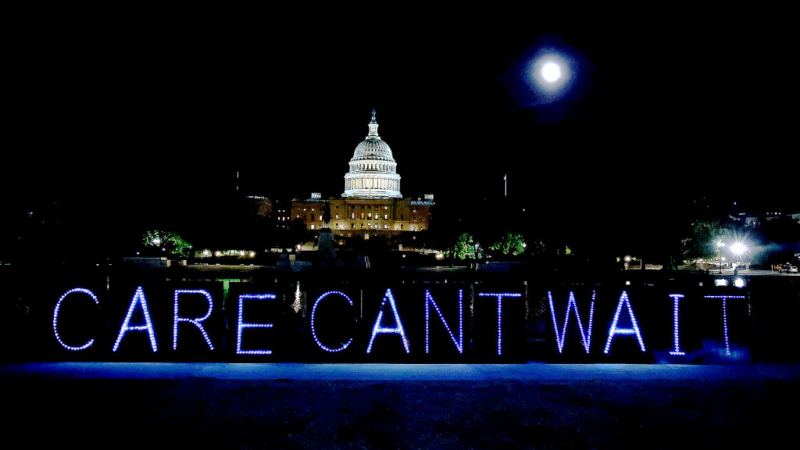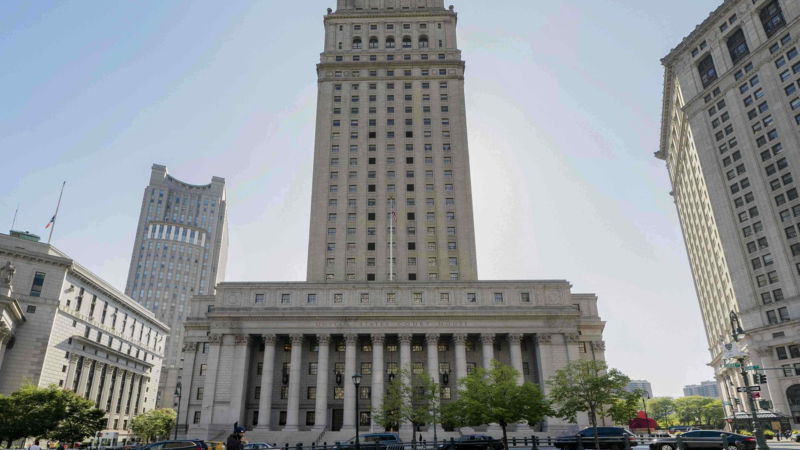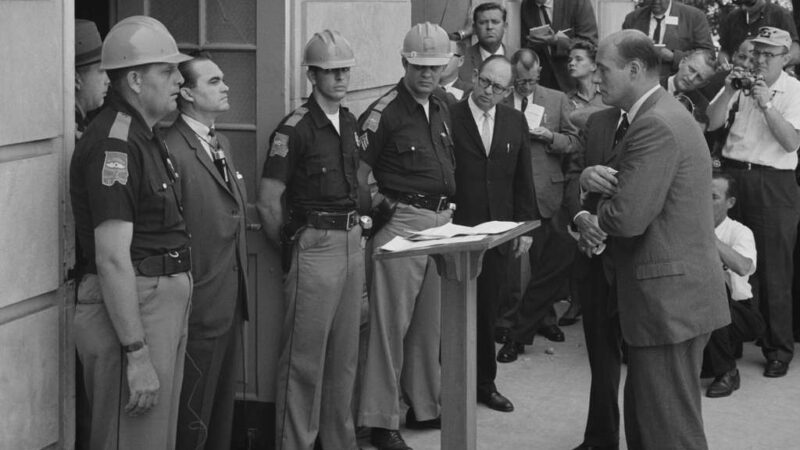Freedom of speech is shifting under the Trump administration. We’re exploring how
Many Americans are worried that their First Amendment right to free speech is fading.
NPR’s Morning Edition has talked to legal experts, activists, immigration lawyers, scientists, students, teachers and others over several weeks to understand why.
Our series “The State of the First Amendment: The Right From Which All Other Rights Flow” will explore who felt censored before President Trump returned to office and who feels stifled now.
Our reporting found scientists are scrubbing reports and federal grant applications of words the Trump administration has banned. Some student activists are afraid participating in protests could lead to deportation. Teachers are nervous about a new online portal where students or parents can file complaints about diversity, equity, and inclusion lessons in class with the U.S. Department of Education.
“When students make connections to events in history that don’t frame the current administration in a positive light and then ask questions, it gives me pause,” says E., a high school history teacher, who asked NPR to use only her first initial for fear she could be reported for speaking out. “I’ve had to hold back, sometimes changing the subject abruptly, telling them that I can’t comment.”
Tune in to NPR and visit NPR.org every day this week for in-depth stories on “The State of the First Amendment: The Right From Which All Other Rights Flow.”
Yet plenty of others, including anti-abortion activists, the far-right activist group Moms for Liberty and members of university Republican clubs, say they feel more free today to express views without fear of a backlash now that President Trump is back in office.
“We now have more members who are willing to help us publicize the club, attach their faces to the club, and be outwardly and openly conservative than we did before the election,” says Miguel Muniz, President of the College Republicans at UC Berkeley.
Free speech ranked as the second most important issue for voters heading into the 2024 presidential election, ahead of crime, immigration and healthcare, according to a poll by the Foundation for Individual Rights and Expression taken a month before the election. Republicans were more likely to rate it “very important” and nearly half of Republican respondents said they spoke less freely under President Biden than they did under President Trump.
Loading…
That may be why soon after President Trump was sworn back into office, one of the first actions he took was to sign an executive order aimed at “restoring freedom of speech and ending federal censorship.”
His critics say his concern for free speech is only for speech his administration finds acceptable.
You can find all the stories in this series here.
China flexes blockade capabilities near Taiwan on second day of military drills
China's People's Liberation Army is staging a second day of large-scale military drills around Taiwan. It's unleashing live-fire exercises as part of what it calls "Justice Mission 2025."
Policy relief for family caregivers seems stalled out. But there are signs of change
Family members carry the burden and costs of caring for America's aging population. Federal policy change is slow to come but a new movement and state actions are building momentum.
Federal appeals court judge is accused of bullying her clerks
The Legal Accountability Project complaint, which has not been previously reported, states that it is based on conversations with multiple former law clerks.
How Alabama Power has left the ‘American Amazon’ at risk
As its polluting coal ash ponds remain in groundwater, Alabama Power has doubled down on fossil fuel energy investments.
How George Wallace and Bull Connor set the stage for Alabama’s sky-high electric rates
After his notorious stand in the schoolhouse door, Wallace needed a new target. He found it in Alabama Power.
FIFA president defends World Cup ticket prices, saying demand is hitting records
The FIFA President addressed outrage over ticket prices for the World Cup by pointing to record demand and reiterating that most of the proceeds will help support soccer around the world.









